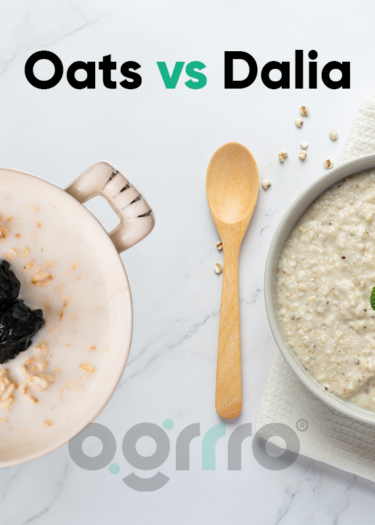What makes organic wheat flour “organic”?
Organic flour, like all processed organic foods, must be grown without chemical pesticides and free from artificial additives.
Additionally, they must be processed with fewer artificial methods common to the industry such as chemical ripening and genetic modification.
Even though organic wheat flour is sometimes harder to find than regular wheat flour, and oftentimes more expensive, there are many advantages to its use both commercially and domestically.

Is whole wheat flour healthy?
Organic whole wheat flour is loaded with nutrients. Wheat flour is a staple food item in Indian households. Below are a few health benefits of whole wheat flour.
Improves body metabolism
Organic wheat flour and other whole grains are extremely beneficial for people with metabolic disorders. It is recommended by doctors to consume whole wheat bread along with other fiber-rich foods. Most fiber helps aid in the digestive process and enhances the body’s metabolic activity.

Prevents heart attacks and strokes
The best way to prevent heart attacks is to eat organic wheat for breakfast in the form of cereal or bread. The nutrients in organic wheat grains reduce the risk of high blood pressure and heart attacks. Therefore, eating a bowl of delicious whole-grain breakfast can protect you from heart disease.

Help lower cholesterol
Not only can organic wheat grains prevent the body from absorbing “bad” cholesterol, but they can also reduce triglycerides, which are major risk factors for heart disease. Organic whole wheat flour consumption actually reduces the likelihood of getting heart disease overall.

Controlled blood sugar
Carbohydrates in whole wheat flour can help to control blood sugar levels. When carbohydrates are consumed, they are converted to glucose by the human body. Sugar is supplied to your cells by glucose entering your bloodstream. The glycemic index of flour products is high, so the blood gets sugar quickly.

Reduces gallstone formation
Since whole wheat is packed with insoluble fiber, it contributes to a faster and smoother transit through the intestinal tract and reduces bile acid secretion. Gallstones are primarily formed due to excessive bile acids. In addition, consuming more organic wheat increases insulin sensitivity and lowers triglycerides and fat within the blood.
Dietary laxative
Organic whole wheat has the advantage of containing large amounts of dietary fiber, which is another advantage of consuming whole wheat. There is a consensus that wheat’s dietary fiber is much more effective than that of fruits and vegetables. Fiber is essential for a healthy digestive system and for maintaining a clean environment. Organic wheat is rich in fiber, which is helpful in preventing constipation.

Decreases chronic inflammation
Many of the rheumatic pains and some of the rheumatic diseases are associated with inflammation. Consuming organic whole wheat foods in moderation, therefore, is a good idea because it reduces inflammation.

Reduces Type 2 Diabetes
Magnesium is abundant in wheat. Over 300 enzymes require magnesium as a co-factor. Diabetes affects an increasing number of people today. It maintains a healthy blood sugar level. Rice is not recommended for diabetics to eat, so they can control their sugar levels. Furthermore, organic wheat prevents diabetes type 2.

Also read about: Health Benefits of Dalia.
Conclusion
You may now be able to clearly see why wheat flour is such a widely used food on the Indian subcontinent after learning what organic wheat flour is made of and its nutritional and health benefits. Regular consumption of organic wheat flour, which has a high fiber and nutritional content along with a low glycemic index and low gluten content, can go a long way in promoting a healthy lifestyle.






